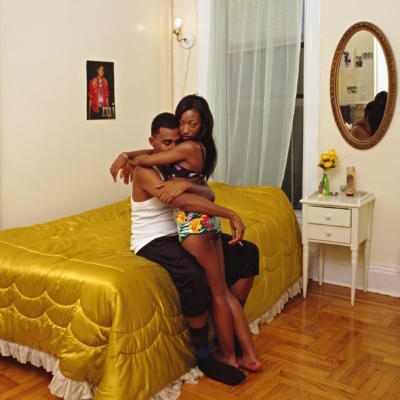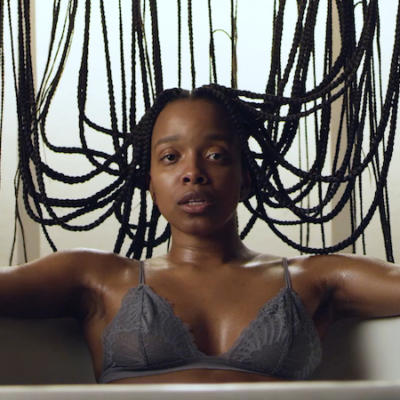If it weren't for the clips in her cascades of dark hair, the front cover of Solange's long-awaited third album would like like a royal portrait. Her stern countenance completes the illusion, and the music inside reveals that it may not actually be an illusion after all. The simultaneously expansive and focused A Seat at the Table feels like the ultimate realisation of all the potential she has shown in the past.
In a way, Solange is music royalty. The younger sister of Beyoncé has until now has a scattered catalogue of albums and EPs that was overshadowed by her big sister, the biggest music star in the world, but A Seat at the Table is a bold word that shows her remarkable dedication, individuality and self-determination. The record revives a lush R&B sound that recalls legends like Marvin Gaye, Al Green and Erykah Badu and acts as a statement of identity for Solange.
Solange composed the twelve songs contained on the album on her piano, which shows in each one's suppleness and slowly blossoming reflexiveness. Even fleshed out by collaborators like Raphael Saadiq, Dave Longstreth of Dirty Projectors and Dave Sitek of TV on the Radio, Solange's touch for flowing, sensual composition is never drowned out. On highlights like the Lil Wayne featuring "Mad," and Sampha duet "Don't Touch My Hair," hooks and melodies drift in and out of focus in ways that feel utterly organic and often jawdroppingly beautiful.
Some of the most powerful moments on the record come when Solange asserts her place in the world as a woman of colour. The aforementioned "Don't Touch My Hair," finds her guarding her personal space at the same time as she celebrates her pride in what separates her from the white majority. "F.U.B.U." (which stands for "For Us By Us") is another highlight in a similar vein, settling into a muscular groove over which sturdy horns murmur agreement to Solange's assertion that "This shit is for us."
Solange's voice rarely rises above a mellow coo or croon, and the songs are appropriately low-key and pensive to match. Coming into this album expecting boisterous pop or fiery soul may lead to a dead end, but instead close listening will reveal incredible attention to detail and marvellous restraint that speak to Solange's compositional skills. When the pace does pick up with hip-hop inspired drums on "Don't You Wait," and the fluid "Borderline (An Ode to Self Care)," the added low end is tempered with jazzy chord progressions and Solange's lithe alto.
The adage goes that "the personal is political," and while A Seat the Table, with tracks like the forlorn "Cranes in the Sky" and the coolly detached "Scales," is just as personal as anything Solange has recorded in the past, at the same time it grapples with power plays and issues of identity in panoramic, all-encompassing ways. It's an insular record, but it finds Solange surveying her queendom, deep in thought, and relaying what she sees with thrilling eloquence and assurance.
A Seat at the Table is out now on digital formats.






